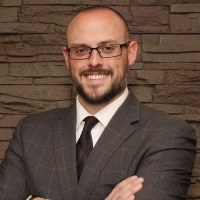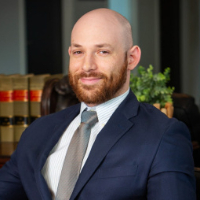Corinne Felony Lawyer, Utah
Sponsored Law Firm
-
 x
x

Click For More Info:
-
Greg Smith and Associates
7324 Union Park Ave Suite 101 Midvale, UT 84047» view mapCriminal Defense Proudly Serving The State of Utah
We've successfully resolved thousands of criminal defense and other cases, and we can take your call now!
800-925-8751
Not enough matches for Corinne Felony lawyer.
Below are all Corinne Criminal lawyers.
Joseph Earl Rupp
✓ VERIFIEDJoseph is a criminal defense attorney and retired U.S. Marine Corps officer. He has been defending the Constitution since 1987. After a 27-year career... (more)
Logan Eric Collins
Logan Collins is a criminal defense attorney in Bountiful, UT. He concentrates his practice on DUI, drug crimes, violent crimes and more. Logan is a m... (more)
Michael K. Hepworth
✓ VERIFIEDMichael is the Managing Partner of Legal. He is also the Principal Broker and President of Security Real Estate, LLC located in Bountiful, Utah, and V... (more)
Brandon A. Bourg
✓ VERIFIEDBrandon has experience successfully advocating for a vast array of clients in both criminal and civil cases. Brandon takes a dynamic and client-orient... (more)
Joseph Henry Jardine
✓ VERIFIEDAfter receiving his B.A. from Brigham Young University, Joseph Jardine studied at the University of Idahos College of Law, graduating with his juris d... (more)
FREE CONSULTATION
CONTACT Gregory Smith Midvale, UT
Gregory Smith Midvale, UT AboutGreg Smith and Associates
AboutGreg Smith and Associates Practice AreasExpertise
Practice AreasExpertise







